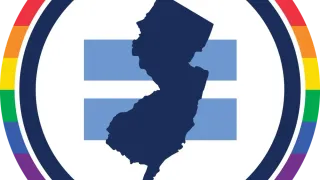October 8, 2022
Report: Walker Encouraged Woman to Have Second Abortion
READ TIME: 2 MIN.
The woman who says Georgia Republican Senate candidate Herschel Walker paid for a 2009 abortion claims he encouraged her to have another abortion two years later, according to a new report. She declined to have the second abortion, according to the report, and the relationship ended.
The New York Times, which published the report late Friday, said it withheld the name of the woman, who insisted on anonymity to protect her son. Walker's campaign declined to comment to the Times.
The report was one of several new revelations that surfaced late Friday, capping a dramatic week in a campaign that could determine control of the U.S. Senate. Walker is challenging incumbent Democratic Sen. Raphael Warnock in one of the most closely watched races heading into next month's midterm elections.
In a brief interview with NBC News, Walker said he didn't know about an abortion.
"The first I knew about any of this was when some reporter asked me about an abortion. And I'm like, 'No, that's a lie.' And then I was asked if I paid for an abortion, and I said: 'No. I did not pay for an abortion,'" Walker told the network. "I'm not saying she did or didn't have one (an abortion). I'm saying I don't know anything about that. I don't know."
The Walker campaign provided NBC with text messages of the unnamed woman texting Walker's wife about the abortion on Friday morning. That, Walker told NBC, was the first time he confirmed the woman's identity. NBC, like the Times, withheld the woman's name.
"Did you know Herschel paid for my abortion the first time? Or that he told me it wasn't the 'right time' to have (their current child)?" the woman wrote in a 9:54 a.m. text message to Julie Walker, the candidate's wife.
"This message makes me incredibly sad. You know I have continually tried to bridge a better relationship between you and Herschel putting (the child) first," Julie Walker responded.
Meanwhile, the Daily Beast, which first reported earlier this week that Walker paid for the 2009 abortion, published details provided by the woman about the candidate's involvement with their child. Walker, according to the Daily Beast, has not seen the child in person for more than six and a half years. He has met the child a total of three times, according to the report, which the outlet said it corroborated with photographs provided by the woman. Two of those instances, the report said, were related to child support proceedings.
The woman also provided the Daily Beast with screenshots of text messages Walker has sent to the child, including one from July in which the candidate didn't tell the child about the existence of a third half-sibling.
"You have the brother and sister I told you about. Love you," Walker wrote, according to the Daily Beast.
Walker later texted the child a picture of the other half-sibling, according to the report, saying "This picture never went."
Walker frequently texted the child messages that read "love you." The pace of the messages, the report said, increased as Walker prepared to announce his Senate campaign.
Walker's campaign declined to comment to the Daily Beast.






